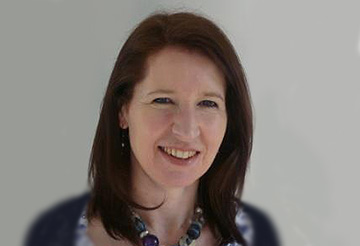How is OCD treated?
Treatment for OCD is often offered as outpatient therapy, meaning you and a team of specialists work together during weekly therapy sessions. Depending on your symptoms and how they affect your life, residential inpatient treatment is also an option. This means you live at a mental health treatment centre and have access to care and support more often.
Whether you’re treated as an outpatient or inpatient, the same OCD treatment methods will be used, and these include different types of therapy and medication to control your compulsions.
Cognitive behavioural therapy (CBT) for OCD
CBT is a highly effective therapeutic method that's used worldwide to treat a range of mental health conditions, including OCD. CBT is based on the principle that OCD develops and is intensified as a result of a series of dysfunctional, deeply ingrained thought processes that cause people to evaluate and respond to situations in unhealthy ways.
Therefore, the aim of CBT is to address the negative thought patterns that form the basis of your OCD, examine why they've developed in the first place, before challenging you to view situations in healthier ways. The OCD CBT programme at Priory aims to reduce anxiety and prevent patients from engaging in the harmful rituals that are characteristic of OCD.
Exposure and response prevention (ERP) treatment for OCD
ERP is a therapeutic technique that encourages you to gradually face your fears until you learn to tolerate and overcome the anxiety they cause. The process of ERP teaches you to simply let your obsessive thoughts and anxiety wash over you, instead of becoming distressed and needing to ‘put them right’ or ‘neutralise’ them with a compulsion.
Exposure requires you to repeatedly test your fears and expectations, learning to tolerate the anxiety without performing your rituals (response prevention).
What does this mean?
- Learning to give up control
- Resisting your compulsions
- Repeatedly tolerating the discomfort that occurs
- Planning out exposures and behavioural experiments so that you can test out whether your irrational theories actually match the results
Through consistent exposures, you'll gradually find it easier to face up to your fear and cope with anxiety. You'll then be able to generalise what is learnt through exposures in other areas of your life. Despite an increase in short-term anxiety and distress, these tend to gradually decrease over time.
Eye movement desensitisation and reprocessing (EMDR) for OCD
EMDR is a therapy method used to treat a variety of mental health conditions including trauma, addiction and anxiety as well as other emotional conditions.
EMDR allows a person to process an emotional experience they have had difficulty talking about. Experience has shown that following EMDR treatment, the person can develop the ability to talk about their trauma more freely, and in a way that may have proved difficult in the past.
Medication for OCD
Medication can also be used to treat OCD. It's usually prescribed alongside CBT, in order to complement the therapeutic side of treatment. Medication can reduce anxiety, minimise the risk of relapse following treatment, as well as act as an additional buffer against OCD. The most useful medications in the treatment of OCD are selective serotonin reuptake inhibitors (SSRIs), which are a form of antidepressant medication. SSRIs are non-addictive and their effects can be seen after several weeks. It's important to take a full course of SSRI treatment, which is usually a year or more.
Repetitive transcranial magnetic stimulation (rTMS)
rTMS is a treatment for OCD that uses a magnetic coil to create pulses of magnetic energy. These pulses are aimed at specific areas of the brain that are involved in OCD symptoms. During rTMS treatment, an electromagnetic coil will be placed on your scalp, and magnetic pulses will pass through your skull to stimulate these brain regions. This stimulation can help to adjust your brain's activity, reducing the severity of your OCD symptoms over time.
As part of rTMS for OCD, the practitioner will also used ‘provocations’ These are actions that are intended to deliberately trigger your OCD symptoms to activate specific brain areas, which can enhance the effectiveness of the therapy.
You’ll usually receive several sessions of rTMS each week, for a period of up to 6 weeks, and may find that this technique provides significant relief, when other treatments haven't worked.
This innovative treatment approach is available on an outpatient basis at Priory Wellbeing Centre Harley Street, which is one of the few places in the country where it can be accessed.
Treating OCD at Priory
At Priory, we understand that the symptoms of OCD can be distressing and confusing. As such, our world class team of specialist psychiatrists, psychologists, therapists and other mental health professionals are committed to providing tailored OCD treatment at our hospitals and wellbeing centres. We're dedicated to enabling you to address the causes and underlying triggers for your irrational thoughts and behaviours, improve your symptoms and regain control of your life.
In addition, Priory’s national network of specialist UK hospitals and wellbeing centres mean that we can offer you the specialist mental health support you need in a location that is convenient for you, and in a way that's flexible around your work and other commitments.










